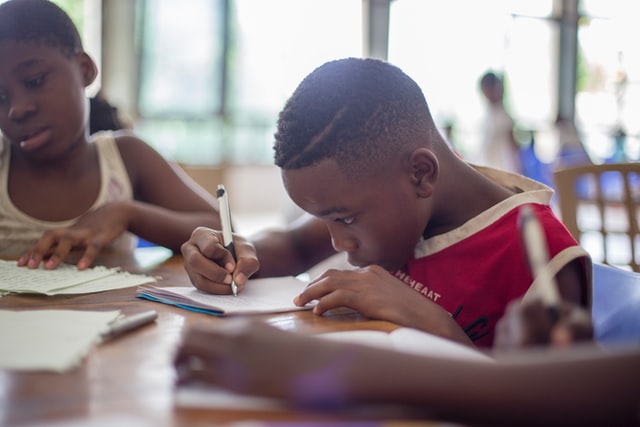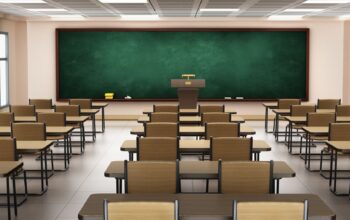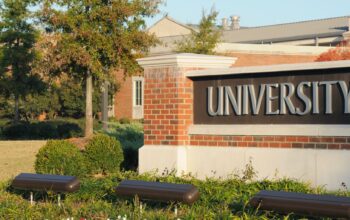With the District receiving an influx of more than $2.2 billion in recovery funds from the American Rescue Plan, D.C. Mayor Muriel Bowser (D) has been allowed more time to specify her budget allocations for the 2022 fiscal year.
In the weeks before Bowser’s expected to submit her budget proposal to the D.C. Council, education advocates, particularly those in D.C.’s charter sector, continue to organize in the hopes that she will prioritize funding for in-school mental and behavioral health services.
For Shannon Hodge, Bowser’s investment in mental and behavioral health ensures, at the very least, that charter school students returning to the classroom will receive what they needed before the pandemic.
“The first level is getting a city-provided mental health clinician,” said Hodge, executive director of the DC Charter School Alliance.
The DC Charter School Alliance counts among the members of a coalition vying for multi-year investments in mental and behavioral health funding at a time when dozens of District charter schools lack a mental health professional.
In recent weeks, Shannon said she and her colleagues have engaged the Office of the Deputy Mayor for Education and the D.C. Council around this issue.
“The box is checked if they have a clinician. We’ll have to get to that next level to make sure we have appropriate ratios of clinicians to students [and] clear expectations about what those clinicians are doing,” Hodge said.
“In the long-term, we need to make sure we are providing funding in other areas that would allow schools to direct resources to clinicians,” she continued. “Many schools, particularly those that serve a higher number of students designated as at-risk, are underfunded, and tough decisions have to be made.”
The Youth are Falling Further Behind
Before the pandemic, 59 percent of Black students and 39 percent of Latino students under the age of 17 in D.C. had been exposed to traumatic events affecting their mental health. For many young people, social isolation, economic hardship and parents’ emotional fragility during the pandemic exacerbated their precarious condition.
This had especially been the case in communities that experienced a significant portion of COVID infections and deaths.
Learning has also been affected. Inequitable access to internet and technology kept some students behind during the period of virtual learning that took off shortly after all District schools closed. In late 2020, a report compiled by EmpowerK12 found that the District’s youngest and most economically disadvantaged students faced the greatest learning loss.
In April, Bowser said she would use the funds from the American Rescue Plan to increase per-pupil student funding that would produce a net increase of $12 million. She also announced $3 million in investments that target at-risk groups, including overaged students. In addition, English language learners attending secondary schools would receive $11 million more than what had been allocated to them during the previous fiscal year.
In the third round of Elementary and Secondary Emergency Relief Funds from the American Rescue Plan, the Office of the State Superintendent of Education (OSSE) would receive nearly $39 million — nearly a tenth of the total amount —that could be used for learning recovery and acceleration, and addressing the needs of students and their families.
Based on OSSE’s preliminary allocations, the D.C. charter system has been expected to receive $156 million of the total funds, to be split among each school based on a federal funding formula. As these events continue to unfold, local nonprofits wait with bated breath to see if they would be included in schools’ budget for the upcoming academic year.
Literacy as a Priority
For Shukurat Adamoh-Faniyan of Reading Partners DC, it’s imperative that the District government, and in turn District charter schools, invest in combating youth illiteracy.
For the past decade, Reading Partners DC has hosted a one-on-one literacy tutoring program for elementary students. It recently launched Reading Partners Connects, a virtual tutoring platform that pairs students with tutors for twice-a-week tutoring sessions tailored to each student’s needs and strengths.
Reading Partners plans to continue programming in a hybrid model in the fall.
Actualizing that vision, however, would require local schools’ buy-in, Adamoh-Faniyan told The Informer. That’s why throughout the budget season, Reading Partners DC has teamed up with several coalitions to lobby District council members to fund post-pandemic childhood literacy endeavors.
To advance this endeavor, Adamoh-Faniyan has also written blogs.
“We’re in a rare moment where every young person in the city has experienced gaps in learning,” said Adamoh-Faniyan, executive director of Reading Partners DC. “The way to catch them up and get them back on track is to work together and commit ourselves for the next three to five years to pushing students further than they’ve ever been before.”
Sourced From: The Washington Informer




